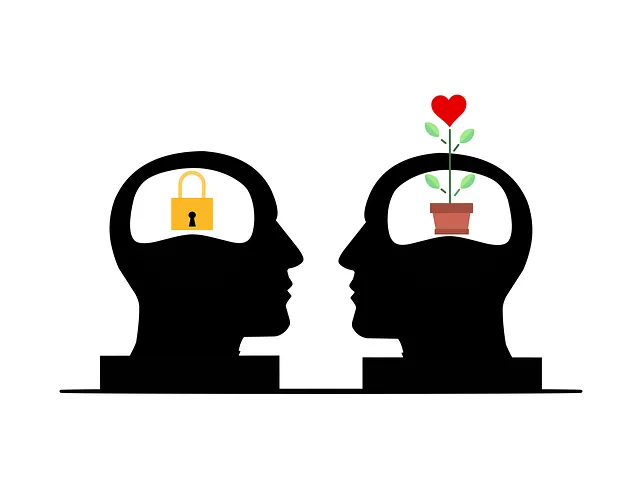In today's demanding world, mental health awareness and accessibility are paramount, with studies highlighting rising wellness issues. Traditional care is evolving through digital tools and apps, enhancing public campaigns and fostering empathy. Apps like the Kaiser Permanente app provide personalized support globally, especially for those with limited access to healthcare. An ideal app incorporates self-awareness exercises, mood management tools, and inner strength development activities, mimicking comprehensive care models like Kaiser in Westminster, known for its good mental health initiatives. By adopting Westminster's patient-centric design and evidence-based practices, developers can create effective mental wellness coaching programs, aligning with Kaiser's successful translation of research into user-friendly applications.
In today’s fast-paced digital world, mental wellness app development has emerged as a powerful tool to cater to the growing mental health needs of modern society. Understanding these needs is crucial, and technology plays a pivotal role in this context. This article explores why apps are gaining traction and delves into the key features that make them effective. We also examine Westminster’s potential as a model for successful app development through Kaiser’s approach, highlighting its impact on mental health initiatives.
- Understanding Mental Health Needs in Modern Society
- Exploring the Role of Technology: Why Apps are Gaining Momentum
- Key Features and Functionality for an Effective Mental Wellness App
- Kaiser's Approach: Can Westminster Be a Model for Successful App Development?
Understanding Mental Health Needs in Modern Society

In today’s fast-paced and often stressful world, understanding mental health needs has become more crucial than ever. According to various studies and reports, including those from Westminster and Kaiser, mental wellness issues are on the rise, emphasizing the need for accessible and effective solutions. The traditional approach to mental healthcare is evolving to meet these demands, with a greater focus on digital tools and innovative apps that cater to diverse populations.
The development of mental wellness apps offers a promising avenue to enhance public awareness campaigns and build empathy among users. By integrating evidence-based practices and strategies for stress reduction, mindfulness, and emotional regulation, these applications can provide much-needed support. Moreover, cultural sensitivity in mental healthcare practice is a key aspect that app developers must consider, ensuring inclusivity and personalized care for individuals from various backgrounds. This approach aligns with the growing recognition of empathy building strategies as essential components in improving overall mental health outcomes.
Exploring the Role of Technology: Why Apps are Gaining Momentum

In today’s digital age, technology plays a pivotal role in shaping our mental wellness landscape. Apps designed for mental health and well-being are gaining immense popularity, offering accessible and personalized support to users worldwide. The convenience of having a mental health resource readily available on one’s smartphone is a game-changer, especially for those in remote areas or with limited access to traditional healthcare services. For instance, the Kaiser Permanente app provides users with tools for stress management, mindfulness exercises, and even virtual therapy sessions, all tailored to individual needs. This shift towards digital solutions reflects a growing recognition of technology as an effective adjunct to conventional mental health treatments.
The success of these apps can be attributed to their ability to offer tailored guidance, promote self-care practices, and facilitate connections with mental health professionals. Features such as journaling exercises, mood tracking, and community forums encourage users to actively engage in monitoring and managing their mental wellness. Moreover, the Mental Health Policy Analysis and Advocacy community benefits from these digital advancements, as they foster awareness, provide access to resources, and contribute to shaping evidence-based policies, ultimately improving mental health support on a larger scale, including in areas like Westminster.
Key Features and Functionality for an Effective Mental Wellness App

An effective mental wellness app should offer a comprehensive suite of features designed to support users’ mental health journeys. Key components include Self-Awareness Exercises that enable individuals to introspect and understand their emotions, thoughts, and behaviors. These exercises can take various forms, such as guided meditations, journaling prompts, or cognitive-behavioral techniques, helping users gain insights into their mental states.
Additionally, the app should facilitate Mood Management by providing tools for tracking moods, identifying triggers, and implementing coping strategies. Features like mood diaries, calming breath exercises, or personalized mindfulness routines can empower users to regulate their emotional responses effectively. Moreover, focusing on Inner Strength Development through activities that promote resilience, self-compassion, and positive self-talk can help users build mental fortitude over time. Incorporating these aspects ensures that the app caters to a holistic approach to mental wellness, mirroring the comprehensive care provided by organizations like Kaiser in Westminster, good for mental health initiatives.
Kaiser's Approach: Can Westminster Be a Model for Successful App Development?

Westminster, with its rich history in healthcare innovation, presents an intriguing case study for Kaiser’s approach to mental wellness app development. Known for its comprehensive healthcare services, Westminster has set a high bar for accessible and effective mental health support. By adopting this model, app developers can create solutions that not only offer mental wellness coaching programs but also integrate evidence-based practices like mindfulness meditation and positive thinking techniques.
This strategy aligns with Kaiser’s successful track record of translating research into user-friendly applications. Emulating Westminster’s focus on patient-centric design, personalized experiences, and data-driven insights can lead to the development of apps that truly resonate with users seeking mental health support. Ultimately, learning from a model like Westminster could be key to creating impactful digital tools for improving overall mental wellness.
Mental wellness apps have emerged as powerful tools in addressing modern society’s diverse mental health needs. With technology playing a pivotal role, these applications offer accessible and discrete support. By incorporating essential features like mood tracking, mindfulness exercises, and community forums, they foster personal growth and resilience. Westminster, with its innovative approach championed by Kaiser, serves as an exemplary model for successful app development, demonstrating the potential to significantly improve mental health outcomes. Embracing digital solutions like these could revolutionize access to care, making mental wellness support more inclusive and effective for all.


